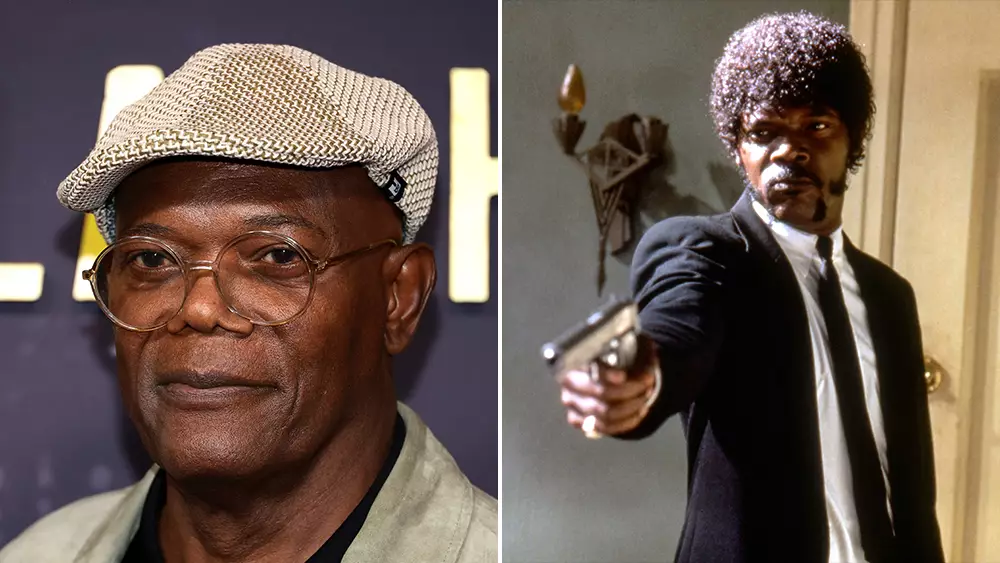After three decades, Samuel L. Jackson continues to mesmerize audiences with his undeniable charisma and unparalleled craftsmanship as an actor. This enduring ability was on full display during the recent celebration of Quentin Tarantino’s groundbreaking film, Pulp Fiction. Jackson, who delivered one of cinema’s most memorable performances, took to social media to provide fans with a nostalgic glimpse into his iconic role as Jules Winnfield, a hitman whose philosophical musings elevate the narrative to exceptional heights. Reciting the formidable Ezekiel 25:17 with meticulous precision, Jackson proved he hasn’t lost a touch of the magic that captivated viewers when the film first premiered.
The thirty-year mark of Pulp Fiction is not just a date on the calendar; it serves as a tribute to a transformative work of art that redefined independent cinema. Jackson’s recreation of the biblical passage speaks volumes about his dedication to the character and the film. The way he articulates the fiery declaration underscores the righteous indignation of Jules as he confronts the darker aspects of human nature. Jackson’s performance is not just about memorizing lines; it reflects a profound understanding of the character’s evolution and his philosophical grappling with morality. His seamless delivery, dramatic pauses, and fluctuating vocal dynamics all align to make this scene a visceral experience.
Pulp Fiction is a cinematic milestone, intertwining various narratives within the gritty underbelly of Los Angeles. Jackson and John Travolta, portraying hitmen whose lives intersect with a multitude of unforgettable characters, propel the film’s plot while skillfully interweaving moments of dark humor and deep existential reflection. The supporting cast, including the ever-reliable Harvey Keitel and the enigmatic Uma Thurman, enriches this narrative tapestry. Tarantino’s innovative storytelling, characterized by nonlinear progression, gave the audience an exhilarating fresh perspective on crime dramas, effectively altering the landscape of American cinema.
While Pulp Fiction is an entertaining ride drenched in witty dialogue and dark humor, it also invites viewers to explore deeper themes. Jackson’s character, Jules, embodies the conflict between righteousness and violence—a struggle that resonates throughout the film. The significance of his recitation of Ezekiel 25:17 becomes a crucial thematic pivot, marking his character’s potential quest for redemption. As audiences reflect on the consequences of violence and morality throughout the film, they are compelled to engage with these weighty philosophical inquiries, making Pulp Fiction as thought-provoking as it is thrilling.
As the world celebrates Pulp Fiction’s enduring legacy, Samuel L. Jackson’s recent Instagram post serves as a clarion call to fans of cinema and narrative alike. His assertion, “YOU KNOW I STILL GOT IT!!!”, echoed the sentiment that true artistry is timeless. The film’s influence continues to be felt, from its memorable characters to its innovative scripting, proving that great storytelling transcends generations. Samuel L. Jackson has not only cemented his place in film history but has also inspired countless actors and filmmakers who will carry the torch into the future of cinema.

Leave a Reply